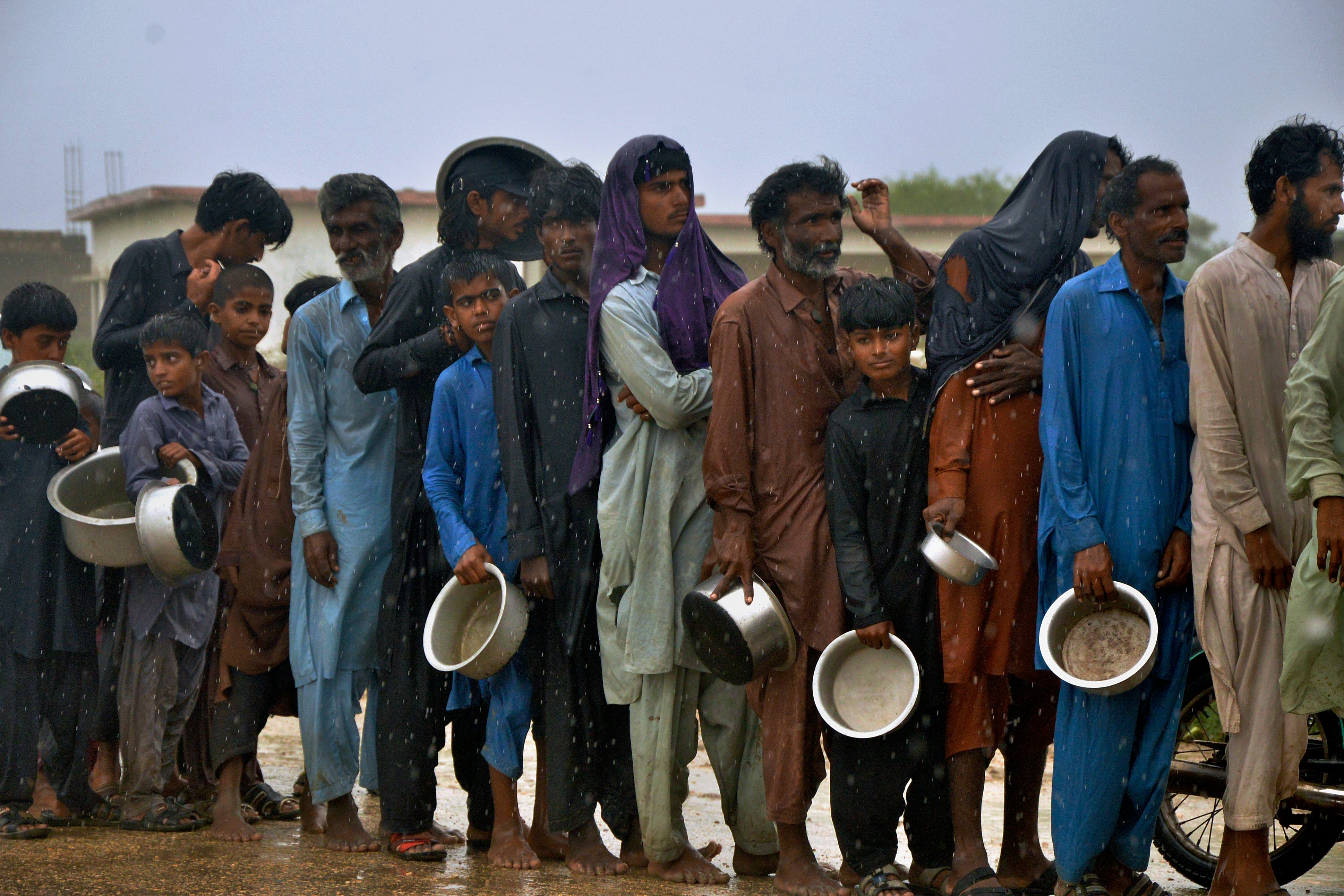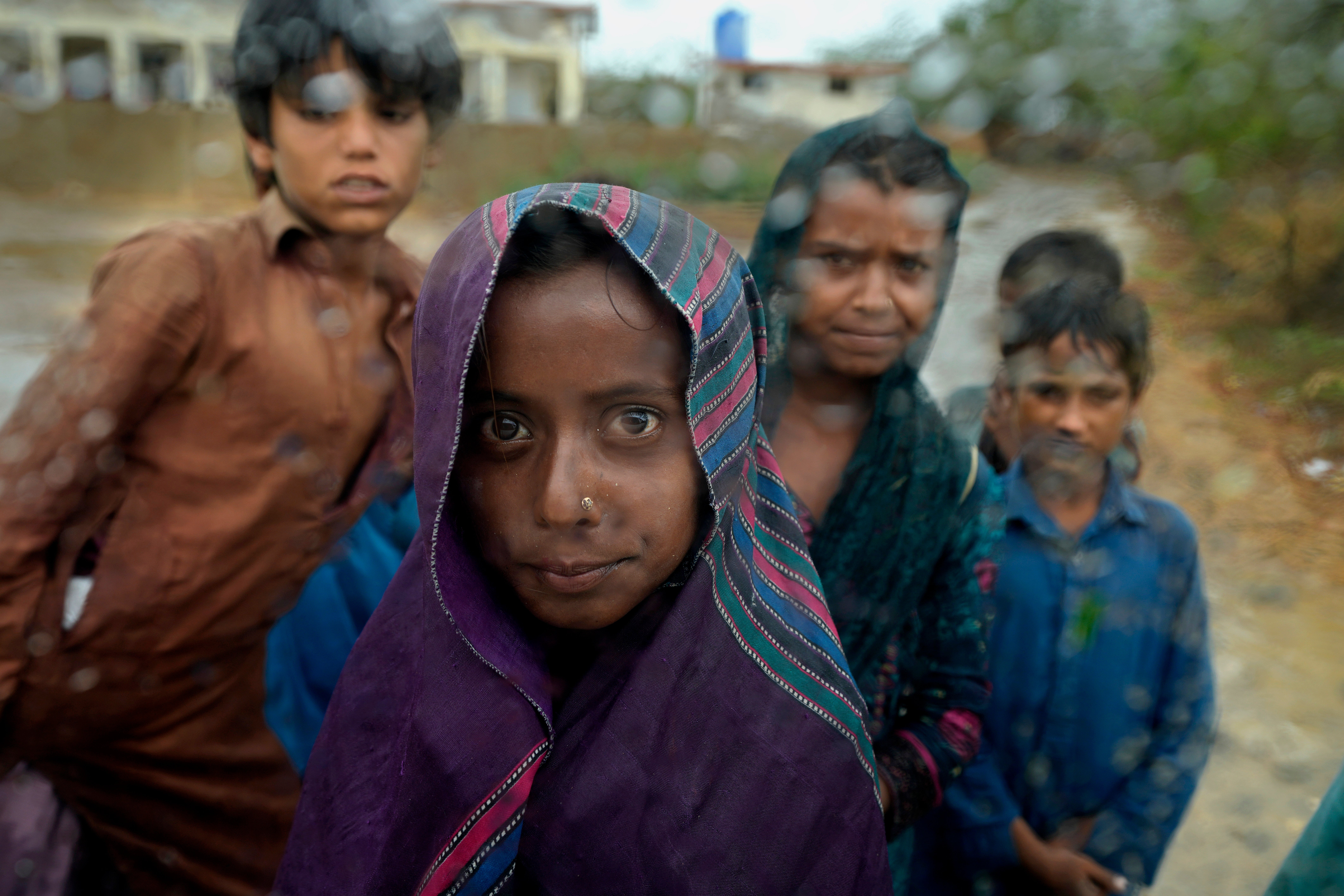Cyclone Biparjoy makes landfall at 86mph as India and Pakistan brace for floods
180,000 evacuated from Arabian Sea coast as storm surge looms
Your support helps us to tell the story
From reproductive rights to climate change to Big Tech, The Independent is on the ground when the story is developing. Whether it's investigating the financials of Elon Musk's pro-Trump PAC or producing our latest documentary, 'The A Word', which shines a light on the American women fighting for reproductive rights, we know how important it is to parse out the facts from the messaging.
At such a critical moment in US history, we need reporters on the ground. Your donation allows us to keep sending journalists to speak to both sides of the story.
The Independent is trusted by Americans across the entire political spectrum. And unlike many other quality news outlets, we choose not to lock Americans out of our reporting and analysis with paywalls. We believe quality journalism should be available to everyone, paid for by those who can afford it.
Your support makes all the difference.Cyclone Biparjoy made landfall on Thursday as western India and Pakistan braced for flash floods, heavy rain and high winds that have already forced the evacuation of more than 180,000 citizens.
Biparjoy, which means “disaster” or “calamity” in the Bengali language, was headed for the state of Gujarat and Pakistan’s southern port of Karachi.
A storm surge of up to 10ft above high tide is expected to inundate low-lying areas in the storm’s path.
Rain pelted the shores and skies darkened along the Arabian Sea, while dust storms hampered evacuation and rescue work on land. Authorities expect conditions to worsen for two or three days as Biparjoy was expected to reach wind speeds gusting up to 86mph.
In India’s Kutch district, near Jakhau port where the cyclone made landfall, authorities were expecting significant flooding.

Bazaars and beaches in Mandvi, India – usually a bustling coastal town known for its wooden boat-makers – were deserted under government shutdown orders. Many offshore oil installations and major ports on the Gujarat coast have suspended operations.
Amid dust storms and rain, displaced families took shelter at relief camps in southern Pakistan. One of the evacuees, 82-year-old Bachai Bibi from Badin district in Sindh province, said “I don’t know what will happen to my home.”
Mohammad Ashraf, 35, said local officials helped him, his wife and three children escape from the Pakistani village of Sheikh in the storm zone.

India has evacuated some 100,000 people to relief camps, while Pakistan has resettled at least 82,000 more.
Pakistan’s climate minister Sherry Rehman warned against panic and said Karachi – the country’s largest city, with 20 million people – remained safe.
Gujarat health minister Rushikesh Patel said detailed preparations have been made “for post-cyclone work like restoration of electricity infrastructure, mobile networks and other infrastructure”.

The government said major religious sites in coastal Gujarat such as the Dwarkadhish temple in Devbhumi Dwarka and Somnath temple in Gir Somnath district will remain closed and Indian railways have cancelled dozens of trains.
Experts say climate change is leading to an increase in cyclones in the Arabian Sea region, making preparations for natural disasters all the more urgent. Pakistan is among the top 10 countries most affected by climate change, although the country’s contribution to global greenhouse gas emissions is less than 1 per cent.
A 2021 study found that the frequency, duration and intensity of cyclones in the Arabian Sea had increased significantly between 1982 and 2019.
Reuters and Associated Press contributed to this report.



Join our commenting forum
Join thought-provoking conversations, follow other Independent readers and see their replies
Comments